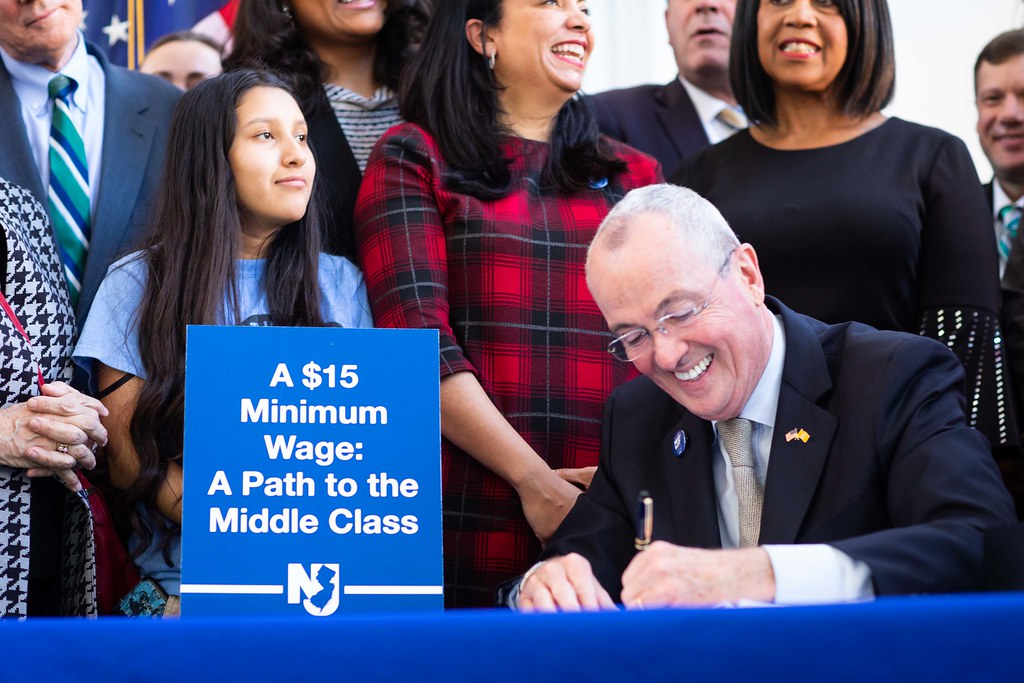In February 2019, newly-elected NJ Governor Phil Murphy set an ambitious goal for himself, signing a legislation stating that NJ’s minimum wage will be at least $15 per hour for the majority of employees by 2024. Now, nearly five years later, Gov. Murphy’s goal has finally been achieved with the Garden State’s minimum wage officially being set at $15.13 per hour.
When Gov. Murphy took over in 2018, the minimum wage in the state of New Jersey was $8.60 per hour. However, he instantly pointed the wage out as a key issue and made it a priority during his time in office.
“When I first came to office, one of my top priorities was to increase the minimum wage for millions of New Jerseyans. One year later, we put pen to paper and officially signed legislation to raise New Jersey’s minimum wage to $15 per hour by 2024,” said Governor Murphy. “As we approach this long-awaited benchmark, I am hopeful that New Jersey workers will be able to improve their quality of life and secure a better future for their families in the middle class. Our Administration will continue to prioritize our workers, who are the backbone of our economy.”
The minimum wage has slowly increased by $1 every year until it was able to reach the $15 mark in 2024. While most employees’ minimum wages will be $15.13 per hour, there are exceptions to the rules for workers in certain sectors. Seasonal and small employers, which are classified as having less than 6 employees, will have a minimum wage of $13.93 per hour. The wage for agricultural workers will be slightly lower at $12.81 per hour and the cash wage for tipped workers is the lowest at $5.26 per hour. Lastly, long-term care facility direct care staff members will have a minimum wage of $18.13 per hour.
“This is a proud moment for New Jersey as we prepare to become one of only a handful of states with a minimum wage above $15 an hour,” said Labor Commissioner Robert Asaro-Angelo. “As we reach this significant milestone, my heartfelt appreciation goes to Governor Murphy and our Legislature for their dedication and commitment to supporting New Jersey workers and businesses.”
The minimum wage uses one of two factors to determine the minimum wage entering a new year. The first is the rate specified by a law, while the second uses a calculation based on the Consumer Price Index (CPI), whichever one produces a higher number is chosen. Despite the minimum wage hitting $15, the state Constitution orders for the rate to increase annually based on any increase in the CPI.














